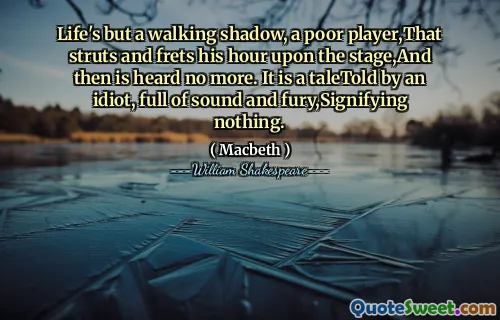Fair is foul, and foul is fair.
In Shakespeare's "Macbeth," the theme of appearances versus reality is encapsulated in the quote "Fair is foul, and foul is fair." This phrase suggests that what may seem good or righteous on the surface can actually be corrupt or evil underneath. The characters in the play often grapple with moral ambiguity, highlighting how power and ambition can distort one's perception of right and wrong.
This duality reflects the chaotic world of Macbeth, where the lines between truth and deception are blurred. As characters pursue their desires, they often lose sight of their integrity, emphasizing how easily good can be mistaken for evil. Ultimately, this central idea serves as a cautionary tale about the dangers of unchecked ambition and moral compromise.






